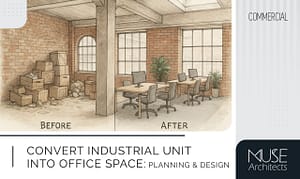Working with Property Developers
Over the years, the property market has seen significant interest and investment from small to medium professional property developers. People are increasingly recognising that land is an appreciating asset, making it one of the highest Return on Investment (ROI) opportunities available.
Real estate developers are individuals and companies that manage all activities involved in transforming ideas on paper into tangible assets (properties). Their responsibilities include buying land, financing real estate deals, and overseeing the development process from start to finish. In this article, I will explain what working with property developers entails.
How Do You Work with Property Developers?
Property developers, also known as real estate developers, are responsible for turning conceptual ideas into real property. The development process involves various professionals, including civil engineers, land and quantity surveyors, architects, and attorneys. The presence of these professionals highlights the extensive work involved in the development process.
What Is Commercial Development?
Commercial property developers, or real estate commercial developers, engage in purchasing and leasing commercial investments such as retail centres and industrial facilities. This sector encompasses diverse avenues and methods for generating profits through investments. Commercial property development typically involves three stages:
1. Site Selection and Evaluation
Site selection and evaluation are the most critical decisions a property developer will make. The success or failure of a project largely depends on the approach taken during this stage. While many aspects of a commercial property development can be changed, the location cannot. New developers often make the mistake of purchasing cheap properties in non-marketable locations, believing they will eventually realise larger profits.
2. Property Flipping and Development
Property flipping, often referred to as merchant development, involves developers who specialise in constructing buildings for near-term resale. Merchant builders typically sell properties shortly after they are completed, often within a year, to minimise the risks associated with long-term asset holding and to realise immediate profits.
3. Creating a Holding Strategy
A proper holding strategy is essential for maximising ROI in a well-selected location. Many commercial property developers base their holding strategies on the length of lease terms they can secure. In real estate, longer lease terms often lead to greater patience before considering a sale.
What Do Commercial Property Developers Want from Architects?
Historically, property developers have not always enjoyed strong relationships with architects. Here are a few key qualities that developers look for before partnering with architects:
- Professionalism: Developers prefer to work with architects who have experience in the real estate industry. A strong professional rapport is more likely to develop with architects who are knowledgeable and competent.
- Team Spirit: The ability to collaborate effectively is crucial. The commercial development process requires a collective effort from all parties involved to achieve success.
- Experience: Practical, hands-on experience as an architect offers a significant advantage when working with property developers in the real estate sector.
Conclusion
At Muse Architects, we are committed to producing the highest quality, industry-leading designs for new build and refurbishment developments in both the residential and commercial sectors. Whether you are looking to unlock the potential value of land before acquisition, build an iconic new luxury apartment or mixed-use development, or provide essential new housing through a multi-unit residential scheme, our expert architects will maximise the gross development value of any site. We ensure the best possible return on investment while effectively managing the entire process.




